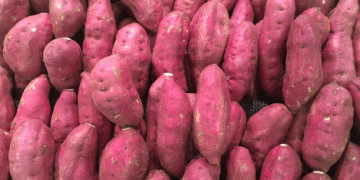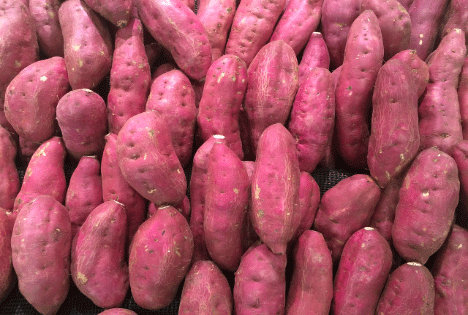Egypt is rapidly approaching a new seasonal record in sweet potato exports to the United Kingdom, reinforcing its position as a key supplier in the global market. According to EastFruit, Egypt shipped nearly 55,000 metric tons of sweet potatoes worth $32.9 million to the UK in the first nine months of the current trade year (July–June). This volume already exceeds last year’s total exports by 18% and is a staggering 71% higher than the 2022/23 season.
Sustained Growth and Market Dominance
The data highlights Egypt’s consistent upward trajectory, with an average annual export growth of 14% over the past five seasons—effectively doubling its shipments in that period. The UK remains one of Egypt’s top destinations, ranking second only to the Netherlands in sweet potato imports.
Seasonal Trends and Competitive Advantage
Egypt’s exports follow a clear seasonal pattern, peaking between September and January. This timing strategically complements the supply gaps left by other major producers, allowing Egypt to dominate the UK market during these critical months.
Key Drivers Behind the Export Surge
- Strong UK Demand – British consumers increasingly favor sweet potatoes for their nutritional benefits, driving steady import demand.
- Egypt’s Production Efficiency – Improved farming techniques, irrigation, and post-harvest handling have boosted yields and quality.
- Trade Agreements & Logistics – Favorable trade terms and efficient shipping routes ensure timely deliveries.
Challenges and Future Outlook
While Egypt’s sweet potato industry thrives, challenges such as climate variability, rising production costs, and competition from other exporters (like the U.S. and Spain) could impact future growth. However, if current trends hold, Egypt is poised to further expand its market share in Europe.
Egypt’s sweet potato export boom underscores its growing influence in global agri-trade. By capitalizing on seasonal demand, improving production efficiency, and maintaining strong trade relationships, Egypt is set to remain a dominant player in the UK market. For farmers and agribusinesses, this presents both opportunities for collaboration and lessons in supply chain optimization.































